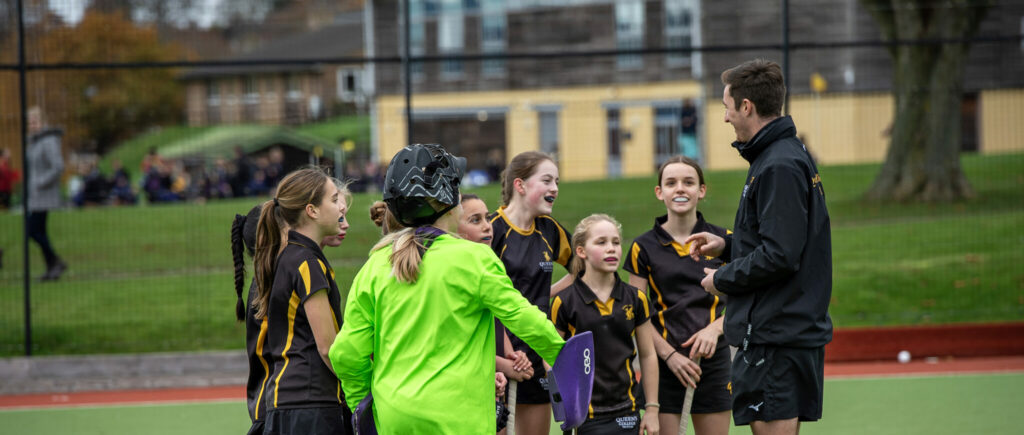As rain pours across the country this afternoon, signalling the fading remnants of our brief summer, the school bell rings in a new academic year. Students, teachers, and staff are presented with the opportunity for change, challenge, and renewed ambition. The start of the school year is more than just a restless night before, the setting of alarms, and the return to familiar routines; it’s a true chance to set personal goals, nurture mental well-being, and strengthen the human connections that define our roles.
The Importance of Personal Goals
“New year, new me”. A phrase we often hear as a new school year begins, highlighting the importance of setting personal goals. These goals give us direction and purpose, focusing our efforts on what truly matters. For students, goals might include academic achievements, participating in extracurricular activities, or acquiring new skills. For educators and staff, they may focus on professional development, enhancing student engagement, or achieving a better work-life balance.
Recently, I’ve been exploring the psychological benefits of writing a “Zander letter” to gain clarity and focus. Inspired by Sir Dave Brailsford’s concept of “controlling the controllables,” a Zander letter is written as if it’s 12 months in the future, outlining key achievements and milestones as if they’ve already been accomplished. This future-oriented visualisation technique can be a powerful tool for goal setting.
Personal goals act as a roadmap, guiding us through the challenges and opportunities that lie ahead. While teachers often set this expectation for students, how many of us actually apply it to our own growth outside of Performance Development Reviews (PDR) and line management processes? Setting SMART targets—specific, measurable, achievable, relevant, and time-bound—is crucial. Overambitious goals can lead to frustration, while those that are too modest might not inspire the drive needed for real growth. By establishing clear, meaningful objectives, we can all embark on a journey toward success this year.
Mental Well-being: A Foundation for Success
While personal goals are essential, they can only be effectively pursued when built on a strong foundation of mental well-being. Social media is full of success stories and shortcuts, but it’s clear that true success in any area relies on consistency and prioritising mental and physical health. Establishing a set of non-negotiables that remain constant, no matter the circumstances, should be the cornerstone of our routines.
On that note, I recently had a conversation with a senior colleague about healthy lifestyles, and he shared that his personal rule was to only indulge in school desserts on Fridays—a level of self-control that left me wondering if I should be taking notes or just admiring his willpower. But jokes aside, it was his non-negotiable way of maintaining control. The beginning of a new school year is both exciting and stressful, with the pressures of academic performance, pre-season training, social expectations, and extracurricular commitments weighing heavily on students and staff alike.
Mental well-being should be prioritised to ensure that these pressures do not become overwhelming. This involves maintaining a healthy balance between school responsibilities and personal life, practising self-care, and seeking support when needed. Encouraging open conversations about mental health, providing access to counselling services, and promoting a culture of empathy and understanding are all essential steps in creating a supportive school environment.
For students, mental well-being is closely tied to academic performance and overall happiness. A student who feels mentally and emotionally supported is more likely to succeed in the classroom and beyond. Similarly, teachers and staff who prioritise their mental health are better equipped to inspire and engage their students, creating a positive and productive learning environment.
The Human Connection: Beyond Emails and Texts
In a world increasingly dominated by digital communication, it’s easy to get lost in the constant stream of emails, messages, and notifications. While these tools are vital for staying organised and informed, they can also create a barrier to genuine human connection. As the new school year begins, it’s the perfect time to shift our focus from screens to faces, from typed words to spoken conversations.
Taking the time to engage in face-to-face interactions—whether it’s a casual chat in the hallway, a thoughtful discussion in the classroom, or a meaningful conversation in the staff room—can have a profound impact on the school community. These moments of connection foster a sense of belonging, build trust, and allow for the exchange of ideas and emotions in ways that digital communication simply cannot replicate.
For educators, the human side of the role is especially important. Teaching goes beyond delivering content; it’s about understanding students’ needs, recognizing their struggles, and celebrating their successes. Truly listening to students’ voices and concerns is crucial in building strong relationships that support their academic and personal growth.
Listening: The Heart of Human Connection
Listening is perhaps the most undervalued skill in the fast-paced environment of a school. Yet, it is at the heart of building meaningful connections and supporting the well-being of others. Whether it’s a student struggling with an assignment, a colleague sharing a personal challenge, or a parent concerned about their child’s progress, taking the time to listen can make all the difference.
Active listening involves more than just hearing words; it requires empathy, patience, and an open mind. By truly listening, we can better understand the needs and perspectives of others, respond more effectively, and create a culture of mutual respect and support. In the classroom, this means creating an environment where students feel safe to express themselves and know that their voices matter. Among staff, it fosters a collaborative and caring workplace where everyone feels valued.
Conclusion
As the new school year begins, it’s essential to embrace the opportunity for growth, connection, and well-being. Setting personal goals gives us direction, while prioritising mental health ensures we have the resilience to meet challenges head-on. Most importantly, focusing on the human side of our roles—through meaningful conversations, active listening, and genuine connections—can transform the school experience for everyone involved. Let this year be one where we not only achieve our goals but also strengthen the bonds that make our school community a place of support, understanding, and shared success.
Author – Mr Tom Bell
Mr Tom Bell, Director of Sport, joined Queen’s College Taunton in August 2023. Mr Bell began his teaching career in Dorset before becoming Head of PE in Doha, Qatar, shortly after the State was awarded the World Cup in 2022. He spent 6 great years in the country with his wife and two daughters and become Director of Sport of a large International School. After leaving Qatar, Mr Bell moved to Bangkok, Thailand, to work at a large international school with ‘world-class’ status where he was appointed as Director of Sport.





